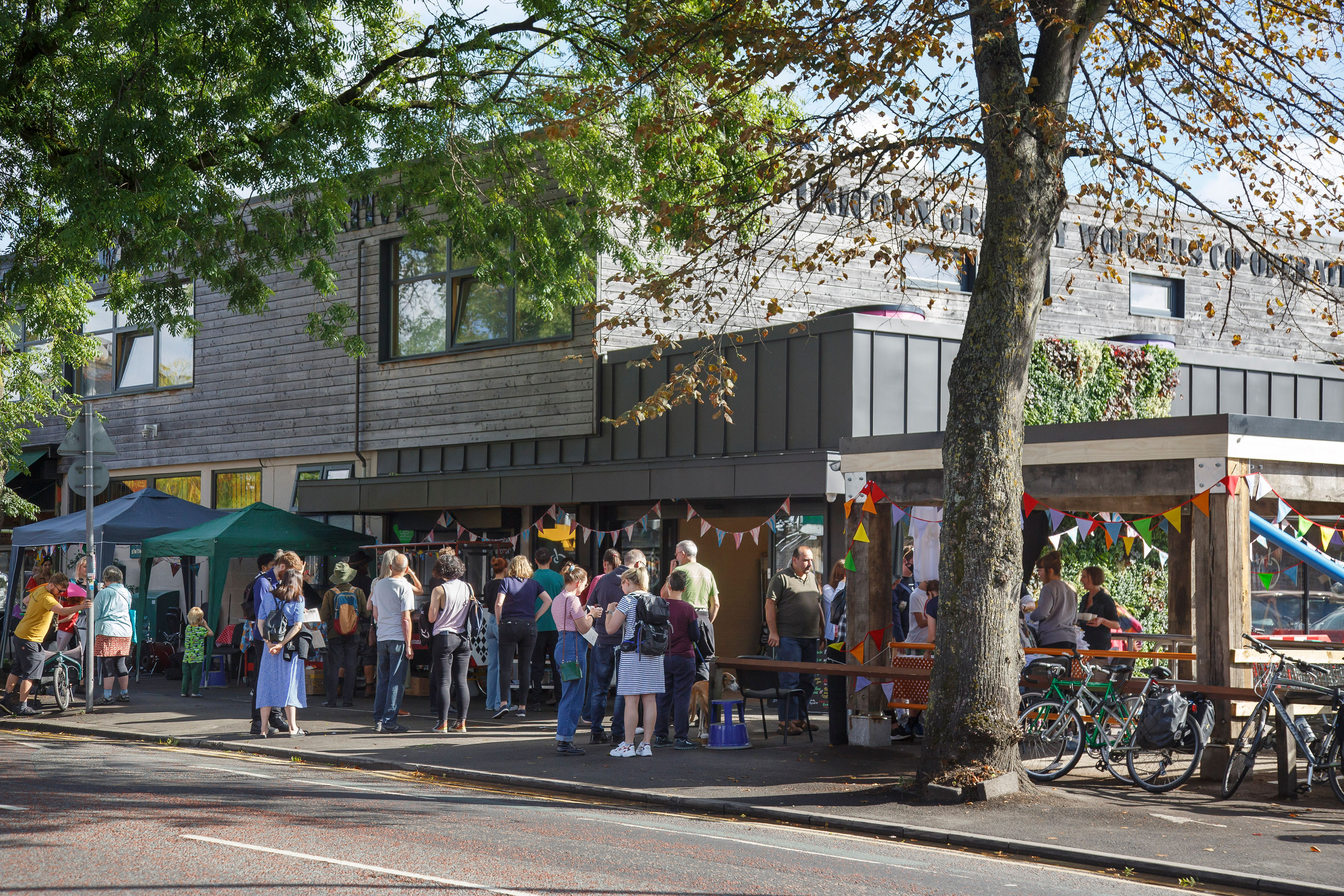Fed up with the mass-produced food that they found at supermarkets, and the expensive offerings of most small health-food shops, Unicorn Grocery was conceived by a small group of people committed to changing the way we eat, by creating a space where wholesome tasty food could be sold at affordable prices. In 1996 such a vision was realised, and Unicorn Grocery committed itself to a shared social and environmental agenda run on cooperative principles. Despite not recording the high profits of their bigger corporate rivals, they go against the grain as a Living Wage accredited business in a sector that is traditionally low paid. In doing so, they show up the failure of any major supermarkets to accredit as Living Wage Employers.
We interviewed one of their member-workers about how it was to work there, what paying the real Living Wage did for Unicorn and the importance of recognising workers in the food industry.
How does being a cooperative change the way you run your business?
As a workers' co-op, Unicorn is owned and run by the people who work in it. We all multitask at Unicorn. We all carry out various shop or warehouse tasks and take on some office-based responsibilities. An average week will see me work on the till, in the deli department, behind the scenes supporting our customer communications and our solidarity funds, and finally contributing to cleaning and keeping office spaces organised.

At Unicorn Grocery, we maintain a flat management structure, in which all members earn the same hourly rate and make decisions by consensus. The structure, which gives all members a say and a stake in the business, provides higher job satisfaction and member empowerment. As a result, wellbeing and good working relationships are at the forefront of our co-operative. I believe this is what motivates us to make the business a success and are key to delivering a different class of customer service and customer loyalty.
Owning a cooperative business is different to that of a conventional business. Being a member comes with a responsibility to look after the business for future members. We are all caretakers of Unicorn, joined together by a great sense of comradeship, equity and trust between colleagues and we take great care to guide the business along the principles that we believe are best for it. We are also democratic; we all have a voice in how the business is run. Operational decisions are devolved to teams, with each team making its decisions by consensus. At Unicorn, all members (currently around 70) are company directors, so we're all legally responsible for Unicorn and its long-term direction. In common with other areas of the business, strategic planning is coordinated by a small team. This work is based on the input and energy of all parts of the business, and the business plans produced, along with any other strategic decisions, must receive consent from the whole membership. This way we can make strong, well-founded decisions upheld by a unified and active membership.
What does paying the Living Wage mean to you?
We had been paying above the Living Wage for many years before we became an accredited Living Wage Employer. As we don't have highly paid managers or executives, wages can be decent for all workers as the reward is equally shared out. We are very proud to be part of a movement that is putting upward pressure on wages for traditionally low-paid shop-floor work. To anyone that is considering becoming a Living Wage Employer, we'd say that to have more and more take-up by employers is vital to the success of the movement, and for it to grow in profile so consumers are more aware of who pays it and who doesn't.
At a time when 400,000 supermarket workers don't earn a Living Wage, how important is it to recognise the work of retail workers properly?
In early 2020 the Home Secretary categorised any person earning under £25k per year as 'Low Skilled' or 'Unskilled'. As Craig Oldham's great piece of design "May They Never Be Deemed Low Skilled Again" beautifully illustrates, key workers didn't suddenly become key to society a month later. It has been heart-breaking to see some of society's most important work valued so little in economic terms. Care work provides perhaps the most powerful example but there are too many other roles.
At Unicorn, we value all the different kinds of work that go into making our business thrive equally and being paid the real Living Wage, combined with the fact we all receive an equal wage/hour (no matter our role or length of service) recognises this. It's great for staff, it's great for society, it's the right thing to do.
What does Unicorn do to help protect the planet?
Unicorn was founded with environmental principles at the core. When we opened in 1996, a supermarket trading exclusively in "goods of non-animal origin*" was a radical proposition. However, we knew that the growing popularity of plant-based eating could cut food-related climate emissions up to 70%. Organic produce makes up around a third of our range. On average, plant, insect, and birdlife are 50% more abundant on organic farms. We also waste virtually nothing by ordering carefully, discounting early, and our kitchen using up the veg surplus. The rest goes in the staff's bellies or to the customers via the free box! And whatever is not edible gets composted locally.
Join Unicorn Grocery and our growing movement of nearly 10,000 Living Wage Employers.

